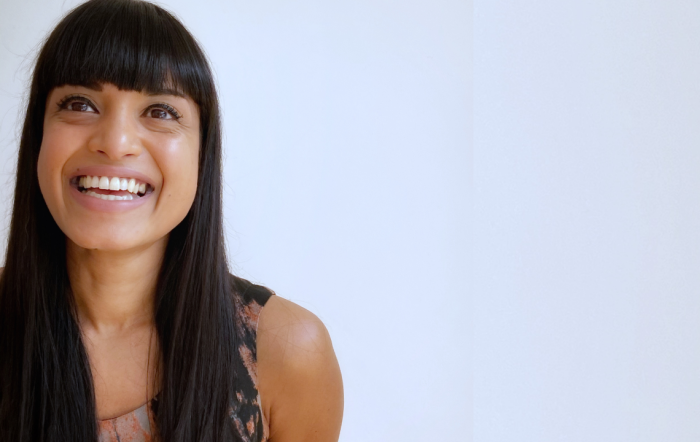Get analysis, insight & opinions from the world's top marketers.
Sign up to our newsletter.
Judging this year’s Innovation Lions highlighted both the power of innovation to drive real change and the importance of senior management support, says Natasha Chetiyawardana, Creative Partner and Co-Founder at venturing consultancy Bow & Arrow, part of Accenture Interactive.

Cannes may not have been happening in person but the Lions were back this year and I was fortunate to be on the Cannes Lions Innovation jury. After the bubble of lockdown, it was hugely inspiring to judge with some exceptional people and see work of truly world-class calibre.
Innovation is – in my opinion – the future of both creativity and growth. The fact that we didn’t see work shoehorned into innovation categories demonstrates to me that innovation is finally being taken seriously as the growth engine big business needs.
This year’s key themes were systemic change, micro to macro and collaboration.
We saw great solutions by big and small businesses in response to age-old systemic failures – innovation that both works and works for the brands making them, and that make changes that are real and important, not just marketing for marketing’s sake.
Our Grand Prix winner, ‘Degree Inclusive’ by Wunderman Thompson Buenos Aires for Unilever, featured an adaptive deodorant designed to be used more easily by people who find it difficult to see, hold, grip or use standard products.
It wasn’t chosen just because it’s a brilliant piece of design, which has been justly heralded across the world, and because it ties in so well with Degree’s brand values. It’s so much more than that. I love that it reflects how mainstream design is changing to take cognitive and visual impairment, gender and difference as a starting point for innovation. The attitude behind it is end-to-end inclusivity, making products for everyone. As Wunderman Thompson’s Global Head of Inclusive Design, Christina Mallon, said in her presentation, “when you design for disability, you design for everyone”.
It was inspiring to get an insight into the holistic, tenacious thinking that took ‘Degree Inclusivity’ from idea to reality, at scale. It was no surprise that this had C-Suite sponsorship – great ideas generally don’t see the light of day until they do. Other brands take note: If you want to innovate and make real change you need to support the process.
There are two sides to this trend. One is innovation created to tackle problems based on a micro insight with a specific scope but which could potentially scale and be applied at a macro level. This showed up in ‘Untouchables’, a portable cabin, which uses tech for breast cancer detection, enabling women – who would have had to opt out for cultural reasons – to get screened, and potentially save their lives.
It was created to cut the high rate of deaths from breast cancer among women in rural areas of Mexico where cultural attitudes mean traditional examinations are taboo – but it’s an innovation which has many more uses and could help millions around the world.
‘Code of Conscience’ and ‘Awa’ are two other great examples of work with roots in specific, local issues that have resulted in innovation that has global potential.
The second side to this trend was around personal dignity and fairness and how this is being played out in accessibility innovation. That means innovation that restores people’s dignity and therefore a macro sense of fairness. This, of course, applies to ‘Degree Inclusive’ but also to ‘Waterlight’, another idea whose scaled application could change lives at a global scale.
Lastly, we saw the shift from a macro focus – Western-led, English-language led – to a vast amount of successful entries from Latin America. Submission videos in local language, with English subtitles. That in itself is a bit of a wake up call to us in the seemingly leading markets – the future is both local and global, and it’s both inclusive and diverse. And that’s the way it should be.
This year’s winners highlighted the power of a personal passion – I believe we are better when we have an attitude of collaboration over anachronistic competition. Entries provided a real sense of opening up to share knowledge, technology and access. This was particularly apparent in the work of Awa, Dot Go and Waterlight.
There’s a huge appetite for work that improves the world amongst both customers and clients. But for our industry to contribute in a meaningful way, we need to ally ourselves with forward-thinking organisations and clients that are committed not to just purpose-led marketing but to making systemic change. They also need C-Suite sponsorship to invest and take risks to create long-term innovation.
That means thinking of everybody as our customers, not just the norm, not just the usual not just what we see as regular. Because in designing for accessibility, we do not just enable, open eyes or open doors. We create belonging, personal dignity and both a micro and macro sense of inclusion and its importance.
Judging at Cannes highlighted just how important chemistry and connection are. It’s not just the clients or our customers. We need to set up teams to be inclusive and democratic and also fun, dynamic and inspired. We need to ally with the forward-thinking clients and act like a team with them. Then we can move from client service to client partnerships, and aspire to real change that will achieve greatness.
Natasha Chetiyawardana is Creative Partner and Co-Founder at Bow & Arrow venturing consultancy (part of Accenture Interactive) and one of the 2021 Cannes Lions jurors for Innovation.